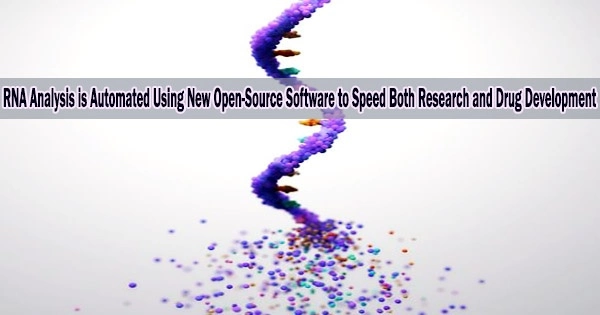A new software tool has been unveiled by Scripps Research researchers to investigate RNA (ribonucleic acid) molecules, which play a variety of crucial roles in organisms. In situations such as fundamental research and drug development, the open-source program “Pytheas,” which was disclosed on May 3, 2022, in Nature Communications, expedites the process of defining and quantifying RNAs.
The software is made primarily to examine RNA data obtained using the mass spectrometry technique. “Mass spec” is frequently used to analyze RNA molecules that are changed in some way rather than being just chains of unaltered RNA nucleotides.
Among their demonstrations, the researchers showed that Pytheas can be used to swiftly identify and quantify modified RNA molecules like those in the current Pfizer and Moderna COVID-19 mRNA vaccines.
“The analysis of RNA data from mass spectrometry has been a relatively laborious process, lacking the tools found in other areas of biological research, and so our aim with Pytheas is to bring the field into the 21st century,” says study senior author James Williamson, PhD, professor in the Department of Integrative Structural and Computational Biology, and vice president of Research and Academic Affairs at Scripps Research.
The first authors of the study were Luigi D’Ascenzo, PhD, and Anna Popova, PhD, respectively a postdoctoral research associate and staff scientist in the Williamson lab during the study.
Because RNA and DNA are chemically extremely similar, RNA molecules play a significant role in both the process of turning genes into proteins and the regulation of gene activity in living cells.
Furthermore, RNA-based treatments, such as the Pfizer and Moderna vaccines, are seen as a very promising new class of drugs that have the potential to interact with biological targets more potently and selectively than conventional small-molecule medications.
The analysis of RNA data from mass spectrometry has been a relatively laborious process, lacking the tools found in other areas of biological research, and so our aim with Pytheas is to bring the field into the 21st century.
James Williamson
Mass spectrometry, which can be used to basically identify the RNAs and their alterations based on their masses, is a frequently used technology for identifying RNA molecules that have chemical changes.
While RNAs used for vaccinations and RNA-based medications are virtually always artificially modified to maximize their activity and prevent adverse effects, natural RNAs frequently have alterations that affect their functions.
In contrast to comparable techniques in the field of protein analysis, for instance, methods for processing raw mass spectrometry data on modified RNAs have been relatively slow and manual up until now, making them exceedingly labor-intensive.
Pytheas, a tool built on the Python programming language, was created by Williamson and his team to significantly enhance the automation of this processing. The software accepts mass spec data from an RNA sample as input and outputs the anticipated RNA sequences and chemical changes, making it simple to quantify different RNAs in a sample as well.
The team demonstrated Pytheas’ speed, accuracy, and versatility using mass spec data for important bacterial and yeast RNAs, and for SARS-CoV-2 spike protein messenger-RNAs like those used in the Pfizer and Moderna COVID-19 vaccines.
“We’re hoping that companies involved in manufacturing RNA vaccines and other RNA therapeutics will find Pytheas useful, for example in monitoring the quality of their products,” Williamson says.
The researchers are now using Pytheas in their studies of natural RNAs, and are continuing to optimize the software.
Pytheas is freely available on the Github software repository.
“Pytheas: a software package for the automated analysis of RNA sequences and modifications via tandem mass spectrometry” was co-authored by Luigi D’Ascenzo, Anna Popova, Scott Abernathy, Kai Sheng, Patrick Limbach, and James Williamson, all of Scripps Research.





